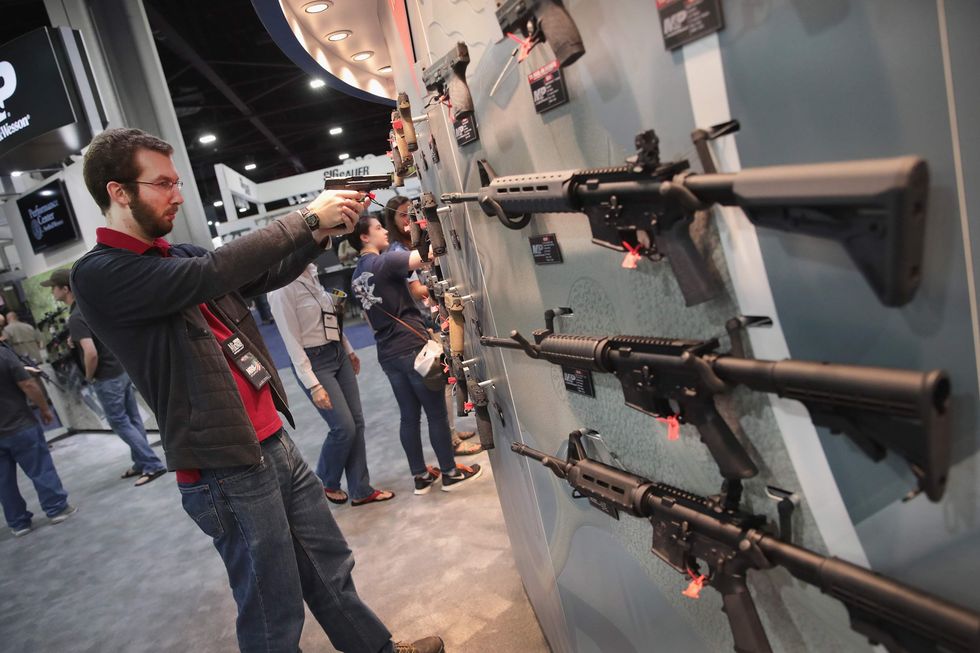
A new report shows that Californians bought guns en masse after mass shootings (Getty Images)

According to a new study from the Annals of Internal Medicine, California - a blue state bastion of gun control - saw its citizens buying guns en masse after mass shootings.
The report, called "Handgun Acquisitions in California After Two Mass Shootings," was lead by Stanford University professor David M. Studdert, and made with assistance from Yifan Zhang, Jonathan A. Rodden, Rob J. Hyndman, and Garen J. Wintemute.
Together, the team analyzed gun purchases made after two major mass shootings, the Sandy Hook Elementary shooting in Newtown, Conn in 2012, and the San Bernardino shooting in 2015. What they found is a surprising increase in the purchase of firearms by Californians within weeks of the tragedies.
From the report:
In the 6 weeks after the Newtown and San Bernardino shootings, there were 25 705 (95% prediction interval, 17 411 to 32 788) and 27 413 (prediction interval, 15 188 to 37 734) excess acquisitions, respectively, representing increases of 53% (95% CI, 30% to 80%) and 41% (CI, 19% to 68%) over expected volume. Large increases in acquisitions occurred among white and Hispanic persons, but not among black persons, and among persons with no record of having previously acquired a handgun. After the San Bernardino shootings, acquisition rates increased by 85% among residents of that city and adjacent neighborhoods, compared with 35% elsewhere in California."
Specifically, an 85 percent increase in gun purchases in the city of San Bernardino and its adjacent neighborhoods is a far larger number than many would anticipate in a state like California, including Studdert.
"It's quite a remarkable response," said Studdert in an interview with KPBS.
Studdert, however, went on to claim that many of these gun purchases are a result of people purchasing guns.
"When we see shocks that stimulate gun purchasing like this, it causes concern that there may be a feedback loop," Studdert added. "With additional gun purchases come additional concerns about security, and that prompts more people to buy weapons, and so on."